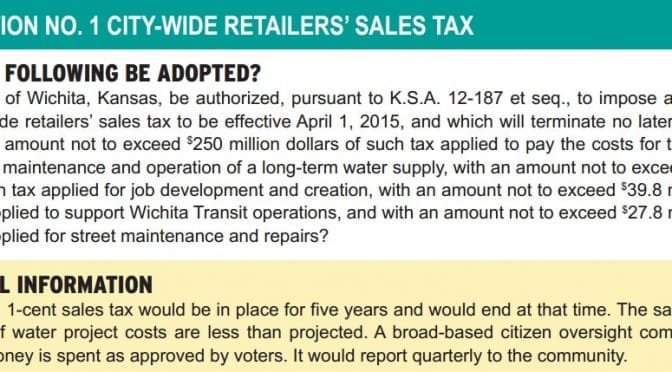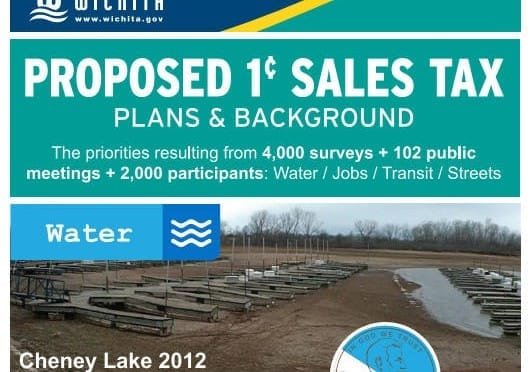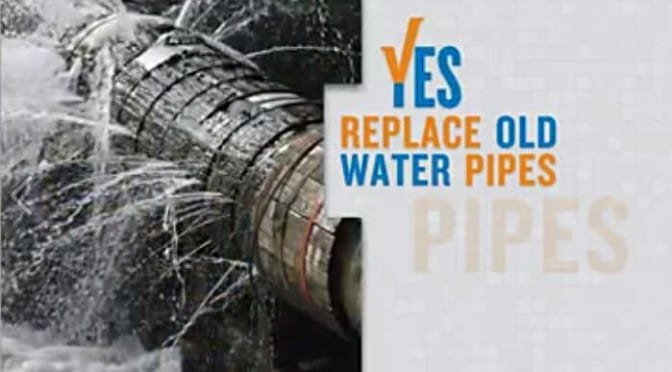At two forums on the proposed Wichita sales tax, leaders of the “Yes Wichita” group provided contradicting visions for plans for economic development spending, and for its oversight.
On Tuesday the League of Women Voters — Wichita Metro sponsored a forum on the proposed one cent per dollar sales tax that appears on the November ballot. I appeared on behalf of the Coalition for a Better Wichita, a group that opposed the proposed sales tax. At the forum, a member of the audience wondered about whether proceeds of the sales tax would be given to Wichita State University. Speaking on behalf of “Yes Wichita,” one of its co-chairs Harvey Sorensen replied “there’s been no ask from Wichita State, there’s been no commitment to Wichita State.” When the questioner pushed back, Sorensen named several infrastructure needs of the WSU innovation campus that might be funded by sales tax revenue. Later, he said “there really have been no commitments” and challenged the questioner to “read me the data.” (For audio of this forum, click here.)
The next day television station KCTU sponsored a debate in which I also participated. Michael Monteferrante represented “Yes Wichita.” He is a co-chair of that campaign. In response to a question, he said of the $80 million of sales tax dollars earmarked for economic development and jobs, “32 million dollars of it will be going to Wichita State University to work on fantastic training for our workforce. Another 32 million will go to just training some of the workforce in terms of our elimination of aerospace jobs. And just 16 million of the 80 million dollars will be going to retention and jobs and areas that will require the oversight that Mr. Weeks is talking about.” (For audio of this event, click here.)
These two co-chairs of the “Yes Wichita” campaign offered contradictory answer to questions about the plans for the economic development aspect of the proposed sales tax. Coupled with Wichita’s hiring two weeks ago of a firm to form an economic development plan for Wichita, citizens are rightly concerned to doubt that the city has a plan for the sales tax.
As far as the promised oversight, citizens might also be alarmed to learn of Monteferrante’s statement that only $16 million of the spending requires oversight.



 On Tuesday October 28 the
On Tuesday October 28 the 





